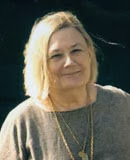About Me

- Anita Burgh
- I am a writer - late developer since I wasn't published until I was 50. I have now written 23 novels, numerous short stories and articles.
Followers
Blog Archive
My Blog List
Powered by Blogger.
Slideshow
Sunday, 4 April 2010
You said that research could be a danger zone, I don’t understand.
There are several reasons why I think research can be dangerous – there might even be more that I’m not aware of.
1.Research is addictive.
I write is addictive rather than can be advisedly. I have yet to meet a writer who does not love the research aspect of their work. After all, presumably it is a period, a time, a subject which interests them. Most already have a good background in their subject but one can always learn more. And therein lies the danger - getting so involved and interested they don’t know where to stop, don’t want to stop. And so the finding out becomes of such significance that the book itself gets put on the back boiler and, in a couple of cases I know, never gets written at all.
Research has usurped writing.
2. Giving too much information.
Imagine, you’ve been toiling away with the research and have notebooks full of fascinating information – facts you knew but lovely new ones too. So the danger
emerges that you find you want to put it all in, the book becomes bogged down with details, the plot is submerged, the reader is irritated, you come over as a know-all and the agent suggests your write non-fiction.
3 The research creaks.
This is similar to 2 but whereas that occurred because of genuine love of the research this occurs because the writer feels they should put facts in to prove they know what they are talking about. It frequently sits awkwardly sometimes because it is not necessary and there is an artificiality to it. The reader become annoyed.
4. Making mistakes.
This is the complete opposite of the others. It occurs when you are convinced that you know your subject or period inside out. Sometimes you don't. It is a good idea to check everything factual – even if you’re book is set a mere five years back in time. If you mention a shop in a real town which, unknown to you, shut six years ago – someone will know and will make it their duty to tell you. Mention a piece of music your heroine hears in May but it was not released until September there will be a clever clogs out there who can't wait to tell you your mistake.
Plants and gardens are a mine field unless you are a manic gardener – check when particular flowers bloom and remember that times differ between North and South.
Abroad can be a mine-field check and check and check again.
Does it matter that much?
It does, because when the reader picks up your book there is an unwritten contract between you. What you have written is the best you can offer, make a glaring error and you lose credibility and the contract is broken.
How do you organise your research?
For a start when writing an historical it is always in a period that I’ve always been interested in and so I’ve done a lot of reading around that time.
If I found out something little known, I know myself, I would have to use it, wanting to share it. So, to prevent that I write and check the facts afterwards. I find that is the safest way for me.
Subscribe to:
Post Comments
(Atom)






This is so right, Annie. Louise Allen and I did a talk on historical-research-for-romance a couple of months ago and made exactly these points when we got to the Pitfalls section!
ReplyDeleteI've had to do a lot of research for the book I'm writing at the moment, and must admit that I've enjoyed it far more than I expected to.
ReplyDeleteThe problem now is to know what to include and what to omit, so this post is extremely helpful. Thank you.
Research is a big must. I wrote something into my wip and then found that it was 3 years too early. Thank goodness, I decided to double check my facts.
ReplyDeleteInteresting post, thanks.
Wonderful advice, full of common sense.
ReplyDelete